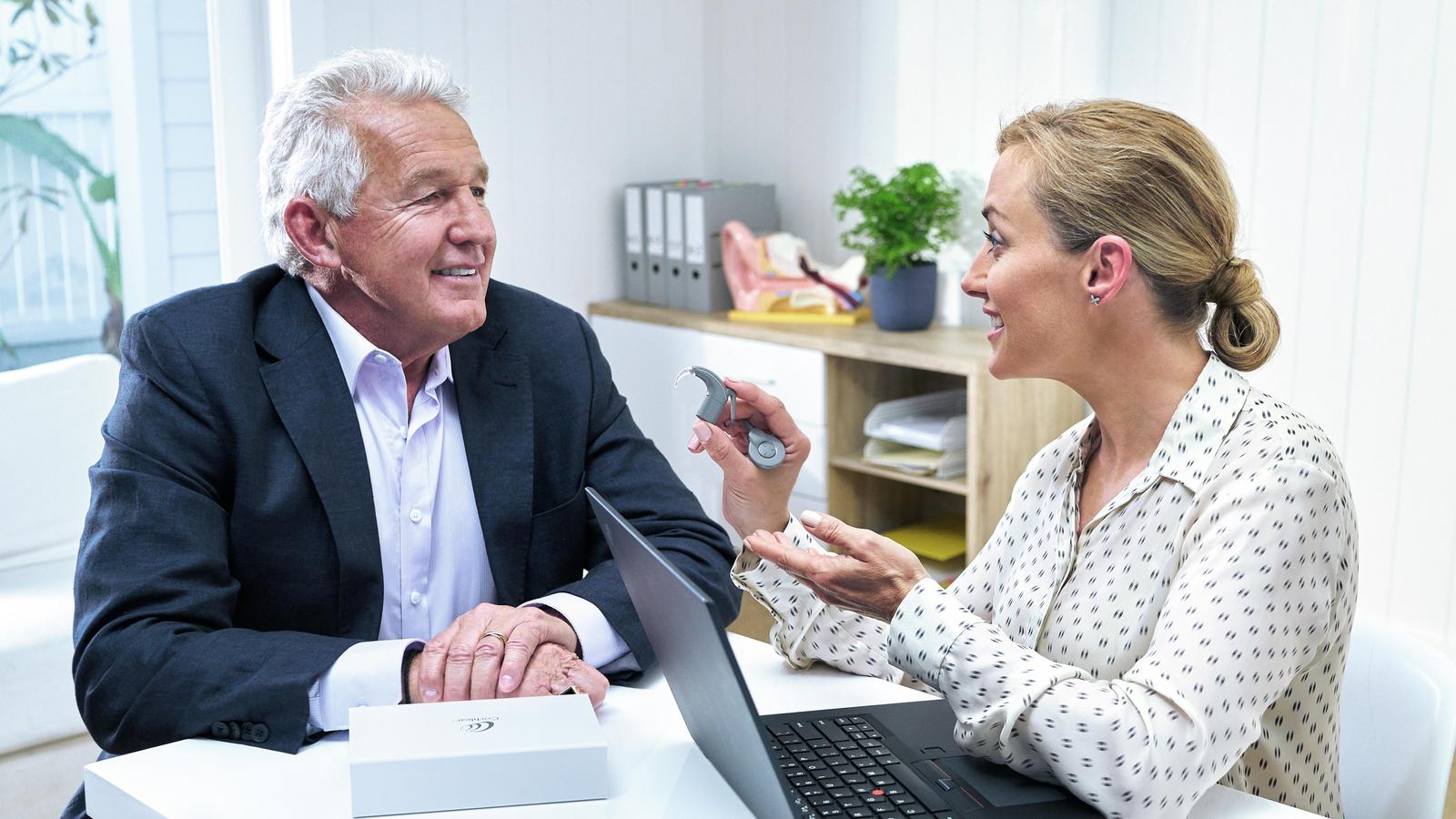Your first appointment
Visiting an audiologist who specializes in advanced hearing solutions is critical to finding the right solution for your specific needs.

What you'll find on this page
- What to expect from your first visit
- Understand how hearing loss is diagnosed
- Explore treatment options
For both adults and children with hearing loss, finding an audiologist who can give you the right advice, support and solution is vital. They'll help you at every step of the journey, so it's important you feel comfortable with them.
“He’s really gotten his sense of humor back, and it’s great to see him be part of the world again.”
- David C. Kelsall, M.D., Rocky Mountain Ear Center
What to expect
On the first visit, your audiologist will usually ask about medical history, recent hearing loss symptoms and general physical health to build a detailed case history.
Ear exam
Your audiologist will probably use an otoscope to look in the ears. This cone-shaped instrument has a light on the end to help them see any physical problems inside the ear.
Hearing test
There are a number of tests an audiologist can use to determine the type and degree of hearing loss. These can include:
- Pure tone sound tests (air conduction test)
In this air conduction test, different pitches and tones are played through headphones or earplugs. The patient signals when the sound is heard. For children, this test is often turned into a game to make the experience fun. -
Speech recognition test
This test is similar to the pure tone test, but uses words or sentences rather than tones. It helps the audiologist determine how well speech is heard and understood at different volumes. - Bone conduction test
In this test, a metal band with an attachment, called a bone oscillator, is placed against the bone behind the ear. Sounds are sent to the inner ear through the bone.
Review results
The results of the hearing test are ready immediately and mapped on an audiogram. This chart maps the degree of hearing loss and typically takes 20 to 30 minutes to complete.
Discuss treatment options
Whatever the results show, it’s important to remember there are effective treatment options for all types of hearing loss. Your audiologist will be able to advise you, but you should also think about factors such as lifestyle and life stage (school, work, retirement) when considering your options.
Because of the crucial role the brain plays in hearing, you may need to follow some training exercises to get the most from whatever solution you choose. Cochlear offers a ready-made program, Communication Corner, of age-appropriate exercises to help you.
Why the right hearing solution matters
Audiologists who specialize in advanced hearing solutions, such as cochlear implants or bone conduction implants, are best able to determine whether a hearing aid or implantable hearing solution is right for your needs. And, once you find the most appropriate solution, your path to better hearing can be life-changing. In fact, for almost 40 years we've helped people hear better, no one's ever said; "I wish I would have waited." Instead they say they wish they would have done something sooner. And, the good news is, you can.
Audiologist Appointment Guide
Your guide to your first appointment with a Hearing Implant Specialist
Audiologist Appointment Guide
175KB | PDF
Find a Hearing Implant Specialist near you
Disclaimer
Please seek advice from your health professional about treatments for hearing loss. Outcomes may vary, and your health professional will advise you about the factors which could affect your outcome. Always read the instructions for use. Not all products are available in all countries. Please contact your local Cochlear representative for product information.
Views expressed are those of the individual. Consult your health professional to determine if you are a candidate for Cochlear technology.
For a full list of Cochlear’s trademarks, please visit our Terms of Use page.





